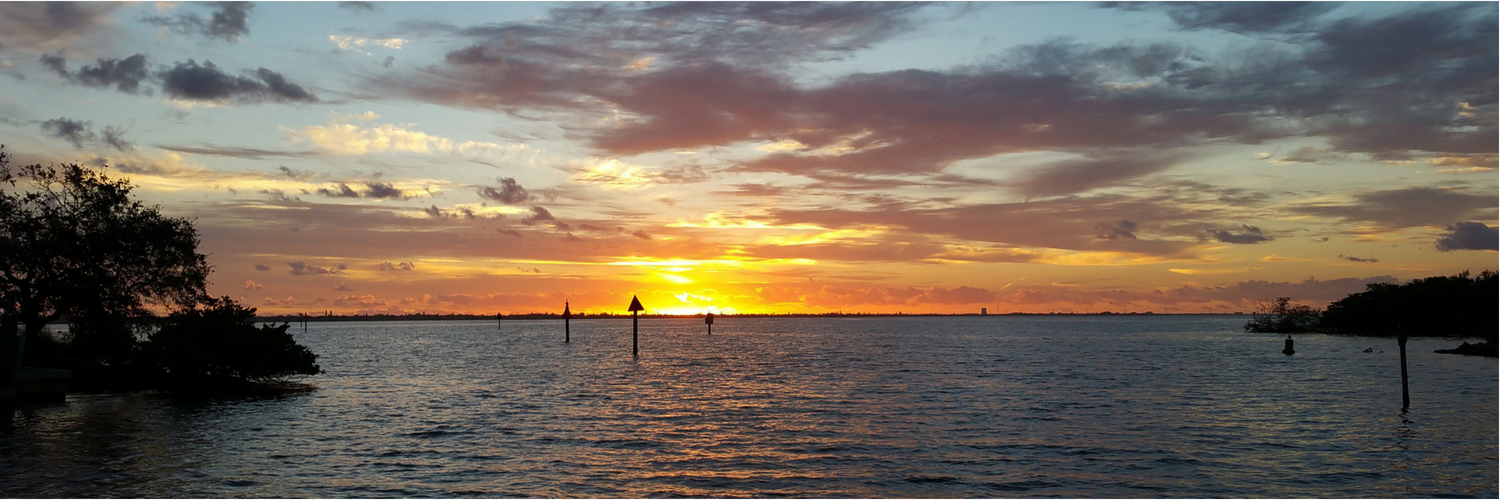Ocean Engineering & Marine Sciences Research
Ecology and Marine Conservation
Research activities include studies of past and future climate change, paleobotany, paleoecology, biogeography, biodiversity, macroevolution and coral-reef ecology. Study locations range from local to international, including the Indian River Lagoon, the Bahamas, the Yucatan Peninsula, Panama, the Caribbean, the Gulf of Mexico, the Galapagos Islands, Micronesia, Peru and Antarctica.
Environmental Sciences
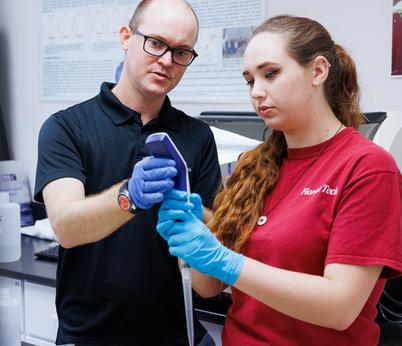
Research areas include effects of harmful algal blooms on marine mammals, impacts of stormwater runoff on riverine and estuarine water quality, groundwater seepage in Florida lakes, dissolved oxygen budgets in aquatic systems, trace-metal contamination of natural waters and sediments, acid deposition, trophic-state classification of lakes, trace organic contamination in coastal systems, hyperspectral remote sensing, and decomposition and sedimentation of aquatic macrophytes.
Research is supported by the Marine and Environmental Chemistry Laboratory, which is equipped with water and wastewater sampling and analysis equipment, a total-organic-carbon analyzer, atomic absorption spectrophotometers and scintillation counters. Florida Tech maintains boats for fieldwork at the Envinrude Marine Operations Center.
Marine Biology
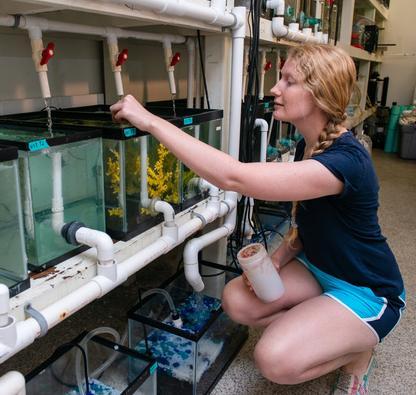
Faculty and students engage in integrative marine biology research. Research programs include climate-change biology, marine ecology, paleoecology, biology and evolution of fishes such as sharks and sportfish species, toxicology, and biology of marine mammals. Specific research includes remote sensing, laboratory and field investigations to explore the effects of climate change and disease on coral reefs, adaptations of fish to changing environmental conditions, recruitment patterns of sportfish, and the effectiveness of marine protected areas.
Marine Geology and Geophysics
Research focuses on compositional and textural analysis of sediment and water samples.
Meteorology
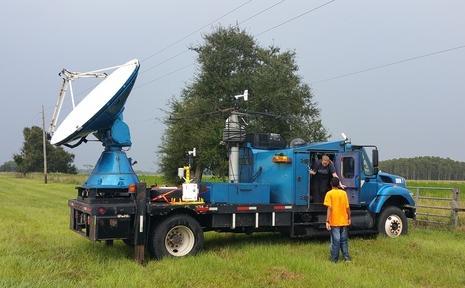
Research topics in meteorology include thunderstorm electrification, coastal meteorology and tropical meteorology. Fieldwork explores the impact of the land surface on the wind and the role of wind as a driver of estuarine hydrodynamics. Atmospheric modeling simulates large-scale oscillations, urban effects on the surface fluxes of heat and moisture, and simulations of deep convection associated with thunderstorm electrification.
Molecular Marine Biology and Ecology
Collaborative research among diverse faculty and students fosters the application of molecular techniques to topics such as fertilization, quorum-sensing by soil bacteria and the plants that live symbiotically with corals, genetic identification of fishery populations, adaptations to climate change, marine diseases and the genetics of endangered shark populations.
Ocean Engineering
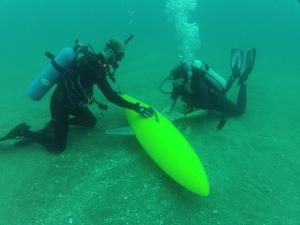
Research interests center on coastal engineering, corrosion and materials, mineral exploitation in the sea, waste disposal, naval architecture and shipbuilding (including small craft), fluid dynamics, engineering and development of instrumentation, marine positioning, ocean energy, and development of underwater vehicles. Ships and marine facilities, both in-house and through HBOI and FIO, support activities involving coastal and offshore operations.
Oceanography
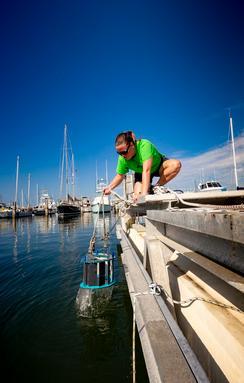
Research activities cover the spectrum of biological, chemical and physical oceanography, including studies of the plankton, benthos, benthic–pelagic coupling, transport and cycling of nutrients and contaminants in oceanic and coastal waters, tsunamis, climate change, and oceanic circulation.
Sustainability and Coastal Management
Research focuses on coastal adaptation to climate change, sustainability, protected areas and fishery connectivity to aid in government decision-making. Student research includes producing solar-powered and LEED-certified buildings, indicators for eco-certification programs and other applied mergers of science, socio-economics and technology.


 Give to Florida Tech
Give to Florida Tech 